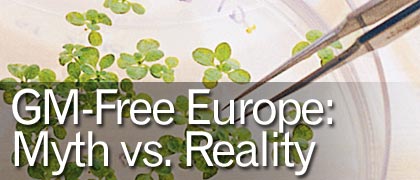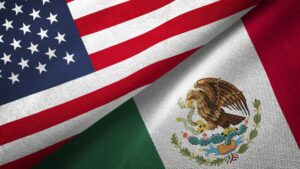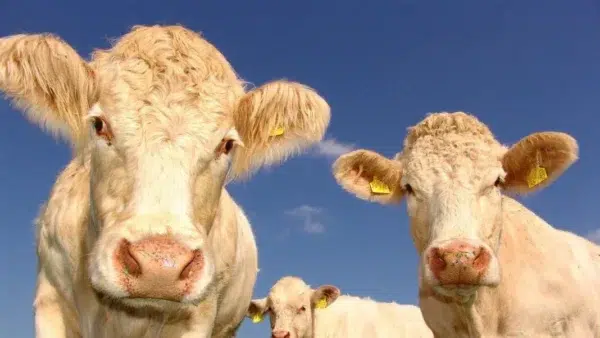When it comes to plant biotechnology, and more specifically to the genetic modification of plants, Europe still seems to be different from most other parts of the world. While many countries have embraced the technology at a breathtaking pace, and the number and acreage of genetically modified plants are constantly growing at double-digit figures year after year, the European Union has had constant discussion on perceived risks, exaggerated benefits and scientific independence—with a near-total absence of any practical field experience.
|
Garlich von Essen is the secretary general of the European Seed Association. |
The European Union has been at the center of numerous trade disputes, even at the level of World Trade Organization panels, as many countries see their exports unduly restricted by the EU’s rigid zero tolerance policy and painstakingly slow approval processes.
Lately, the European Commission has tried to bring new movement into the deadlocked discussion through its proposal to nationalize the decision on actual plantings of GM crops while maintaining the competencies and bodies for safety assessment and general approval at the EU level. But again, this attempt seems to have generated no more than debate, with no concrete results in sight.
For at least a year, member states have been unable to make the principal decision of whether or not to take legal responsibility for their policies on GM crops. There are a number of reasons for this, which plant breeders and biotech developers should make clear to the interested and wider public.
First and foremost, the current status means that there have been no positive decisions made on new GM crops for planting. This is exactly what the vast majority of member states consider to be in line with two of their main political objectives—not to upset their highly vocal and well-organized environmental NGOs (specifically when elections loom on the horizon), and to shift the actual political responsibility for all negative consequences to the European Commission.
So what would national ministers and governments actually ‘gain’ in the case that they could make the final decision on GM plantings themselves, without interference at the EU level? Not much. On the contrary, they would have to visibly and legally take responsibility. In other words, they would need to substantiate claims of the lack of safety of GM crops for human health or the environment, outline the specific climatic or agronomic conditions that would make the co-existence of GM and non-GM agricultural production technically impossible, and to stand up at the WTO level and argue their individual cases. In short, they would have to admit that they are constantly breaking the rules and regulations that they themselves have set for no other reason than the political consideration to avoid difficult discussions and unpopular decisions that require true leadership.
Currently, national ministers with or without direct responsibility for the biotech dossiers are in the luxurious position of claiming to defend their citizens against the technocrats in Brussels (and non-European multinational companies) that seem to be trying to force GM crops and food down the throats of Europeans. What they deliberately forget to admit is that GM products are basically present everywhere in Europe. Huge amounts of feed and food products produced from genetically modified plants in other parts of the world are shipped to the EU daily, fed to its cattle, pigs and poultry, and are—directly or indirectly—part of our everyday diet.
But then again, this is largely hidden behind traceability and labeling rules that are designed to prevent, rather than ensure, consumer understanding. Sugar from a genetically modified sugar beet must be labeled as GM sugar while the use of genetically modified enzymes in sugar production from conventional sugar beets does not need to be labeled GM. And meat or dairy products from animals fed with GM products do not require any labeling at all. In short, these rules are a veil that hides the truth from consumers: that Europe’s farm production is largely dependent upon imports of products that are genetically modified, and that the often-claimed ‘GM-free Europe’ is a myth rather than a reality, but a myth that is politically too convenient to be demystified.
“Huge amounts of feed and food products produced from genetically modified plants in other parts of the world are shipped to the EU daily, fed to its cattle, pigs and poultry, and are—directly or indirectly—part of our everyday diet … This is largely hidden behind traceability and labeling rules that are designed to prevent, rather than ensure, consumer understanding.”—Garlich von Essen
The question remains: is Europe really so different? Do Europeans really welcome biotechnology when it comes to medicinal and pharmaceutical applications, but strongly resent it when it comes to food or even feed production from plants? What can be deduced from all respective studies and enquiries? The picture is blurred at best. Many Europeans have a strong skepticism, mainly motivated by the simple question, “What’s in it for me?” Most Europeans don’t see any personal benefits. And the ones that should (i.e. Europe’s farmers), have so far not been very vocal in their advocacy of access to the technology.
However, with food security coming back to the political agenda, higher feed prices—and consequently higher food prices—and increasingly fierce competition on the world commodity markets, the situation may change faster than many have considered possible. Suddenly, the question, “What’s in it for me?” may be answered with “lower prices.” And Europeans are highly sensitive to food price developments.
Of course, there is no single argument that will suddenly win the hearts and minds of Europeans for agricultural biotechnology. Or, more generally, for its agriculture. For decades, the EU’s agricultural policy, farmers and associated sectors, such as plant breeders and feed or pesticide manufacturers, have been branded as expensive to taxpayers, largely unnecessary and unsuccessful in addressing the wishes of citizens. While this appreciation is now finally changing as Europe realizes its needs and responsibilities toward its own food security, it is important for plant breeders and biotech companies to seize this opportunity, to form a strong, vocal and lasting coalition with its customers—Europe’s farmers and growers—and advocate the much-needed sustainable intensification of European agriculture, to the benefit of the environment and the economy.
This sustainable intensification can only be achieved with technology. It is new plant varieties carrying new traits that are the answer to the increasing demands of an increasing world population. It is high time that Europe recognizes plant breeding and biotechnology for what they are: key sectors for our future that deserve strong and visible political support, and honest, transparent and enabling regulations as well as long-term commitment.
Garlich von Essen














